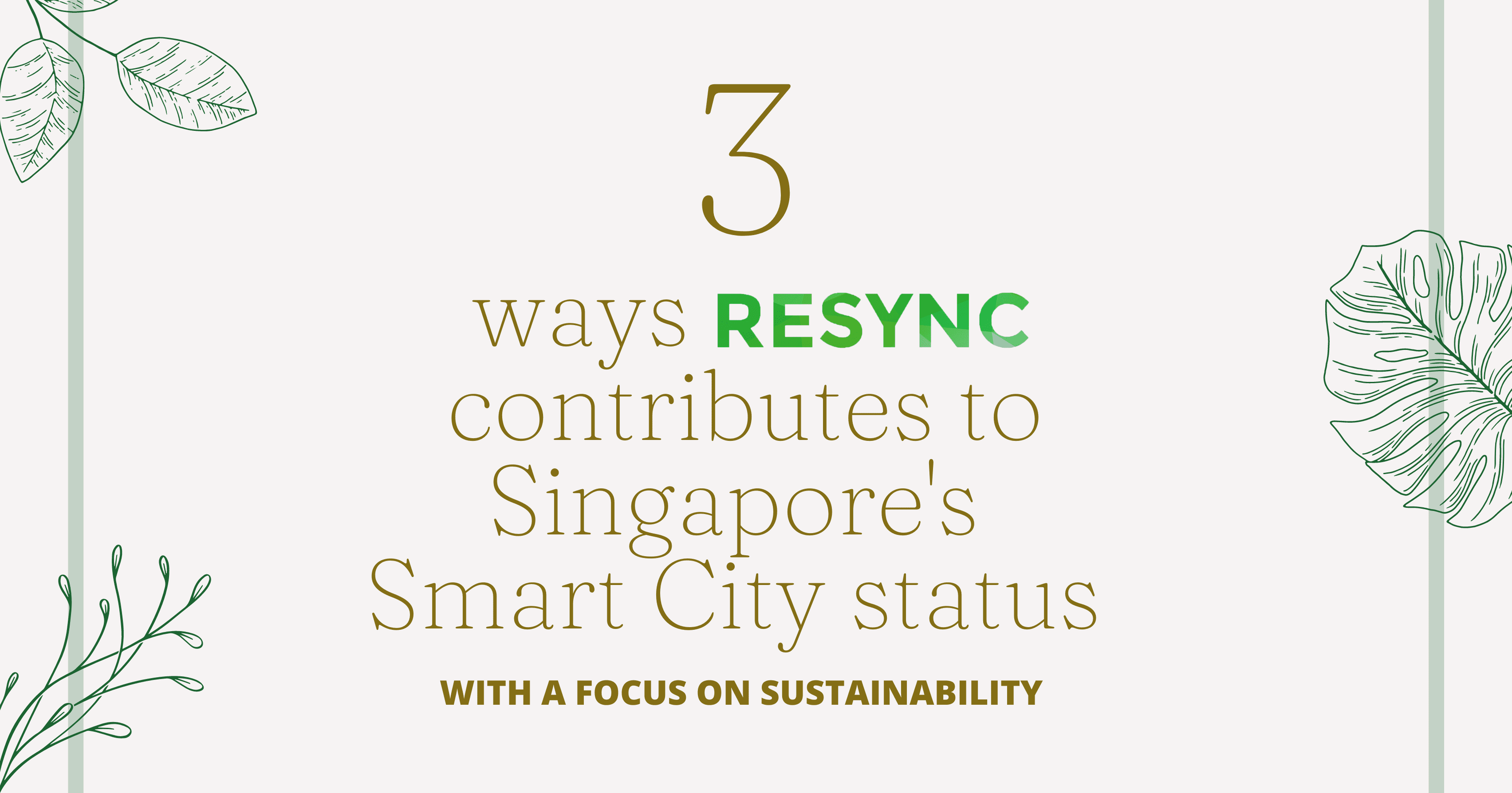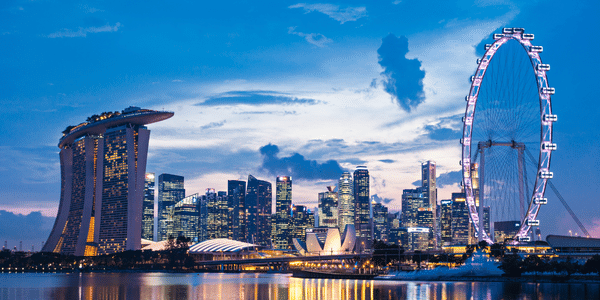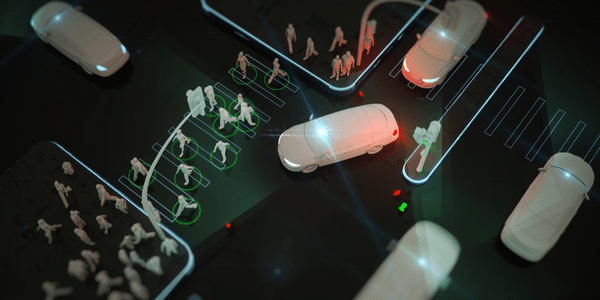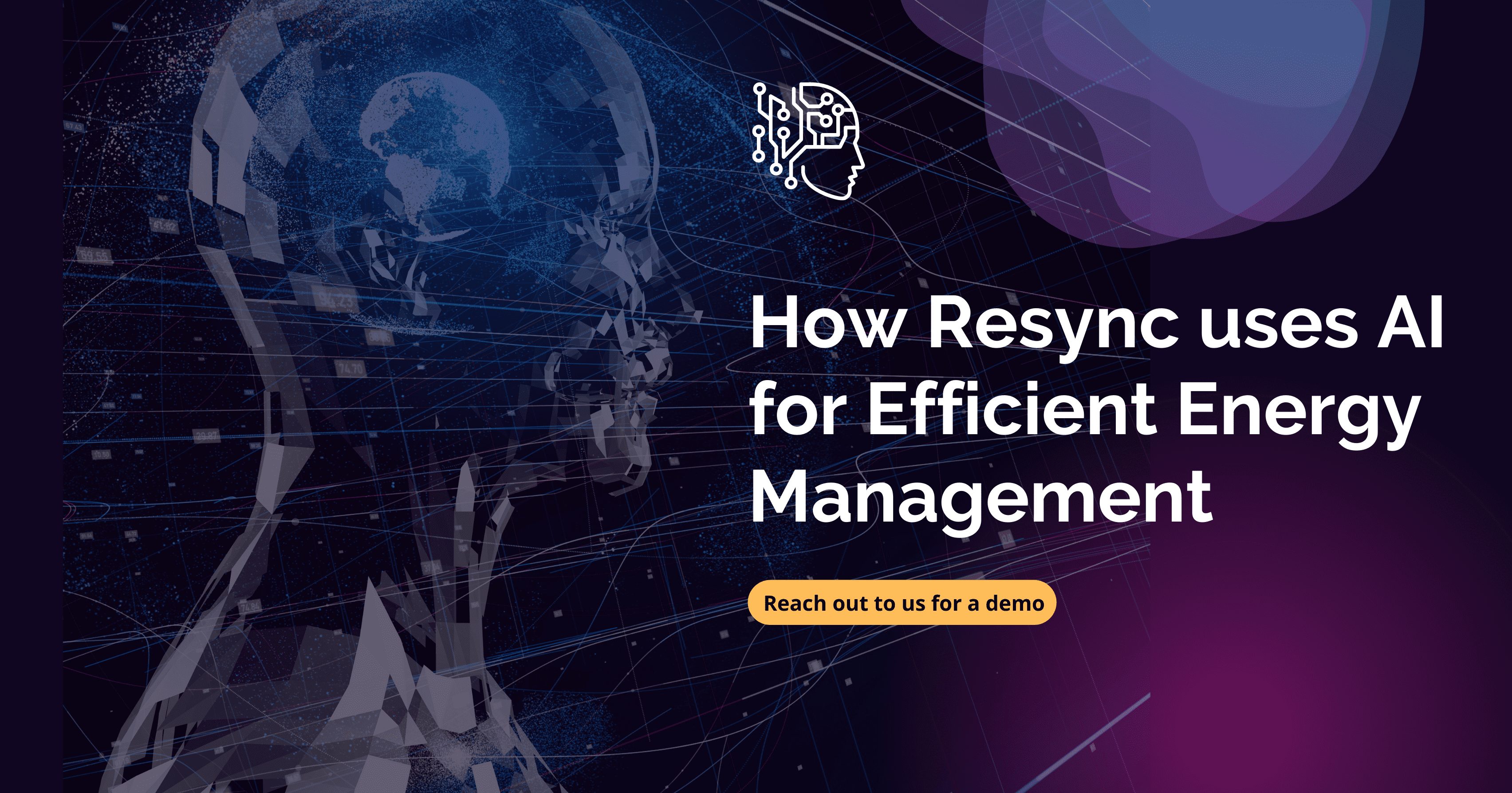3 Ways Resync Contributes to Singapore’s Smart City Status

Singapore has once again clinched the title of world’s smartest city for the third consecutive year. Jointly published by the Swiss business school Institute of Management Development (IMD) and the Singapore University of Technology and Design (SUTD), 118 cities were ranked based on how they utilised technology to amplify the benefits and limit the drawbacks of urbanisation for city dwellers. As a strong proponent of using smart technology such as AI to help individuals and businesses reduce energy consumption and meet sustainability goals, Resync serves to perpetuate Singapore’s smart city status and build a city of clean and green possibilities at the same time. The Smart City Index identified technological provisions across five key areas - health and safety, governance, mobility, activities, and opportunities (for work and school). In this article, by focusing on the first three indicators, we explore how Resync elevates and contributes to Singapore’s smart city status, with an emphasis on building a clean, green and sustainable smart city.
Among key findings made by the Smart City Index, a priority for most city dwellers is access to better air quality and health factors, especially in light of the global pandemic. As a result, smart cities would leverage technology to address air pollution, among other concerns surrounding climate change due to urban activities. Reduced air pollution, for example, would mean cleaner air for all, contributing to improved life expectancies and a healthier city that is capable of more progress.

Resync offers a digital platform and application for households to monitor and minimise their energy consumption. Using Non-Intrusive Load Monitoring (NILM) technology, households have convenient access to real-time information of how much energy each of their appliances consume. Having the power of such data in their hands helps to cultivate a sense of mindfulness of their energy consumption trends. Based on nudge theory, which asserts that positive reinforcements and suggestions would influence one’s behavior and decision-making process, Resync’s app sends out notifications to remind and encourage household members to minimize energy wastage. This is evident in three households that engaged our NILM technology. They managed to reduce their energy consumption and carbon footprint by up to 55%. With households motivated to reduce energy consumption and adopt energy efficient behaviour, individuals can help to negate the negative impact brought about by climate change in an urban environment such as air pollution. Individuals are empowered to contribute to a cleaner and greener Singapore using technology to remain sustainable and smart overall.

The governance indicator, as identified by IMD and SUTD, is also critical in setting the tone and infrastructure for city dwellers to enjoy high standards of living in an urban environment. As buildings are among the biggest contributors of carbon emissions globally, the Building and Construction Authority (BCA) in Singapore has regulated that the Green Mark Certification is compulsory for all buildings. The Green Mark Certification helps to reduce the negative environmental impact of urban buildings. In tandem with the idea of a smart city, Resync’s intelligent building management solution is highly relevant in helping buildings to attain the Green Mark Certification by providing real-time monitoring of buildings’ performance, smart controls and analytics to achieve peak performance with minimal energy usage. With Resync’s platform in place, the Green Mark Certification is more easily attainable. A smart and energy-efficient building is more likely to be sustainable as non-renewable resources used to generate energy could be conserved for generations to come. Indeed, the government is among the most influential authorities capable of introducing green initiatives to steer Singapore towards a sustainable and smart city.

Another key area that the Smart City Index has identified is the topic of mobility. The main objective of smart mobility is to ease traffic congestion and reduce urban pollution. Electric vehicles (EV) are increasingly used in smart cities as they do not emit greenhouse gases and are comparatively more environmentally friendly than gas powered vehicles. The Tengah estate in Singapore, which is an upcoming eco-town project expected to be completed in 2024, is set to normalise the use of electric vehicles. 10% of the parking lots provided would be equipped with EV charging stations. Among the smart technology that Resync offers is a mobility service management solution that provides visibility into planning, scheduling, and routing based on a variety of data sources such as traffic, weather and historical data from the charging service itself. Combined with predictive technology, Resync’s platform uses AI and machine learning to maximise efficiencies for both consumers and EV operators. As Singapore works towards having all vehicles operate on cleaner energy and eliminating Internal Combustion Engine (ICE) vehicles by 2024, Resync’s technology on managing EVs efficiently would certainly be pertinent in boosting Singapore’s progress towards a smarter and more sustainable city.
A smart and sustainable city are not mutually exclusive. In fact, they often go hand in hand. Singapore’s Green Plan 2030 projects a movement to advance SIngapore’s national agenda on sustainable development. This is indicative of Singapore’s target not only to maintain itself as a smart city, but also one that is cleaner, greener and more sustainable. These goals align with Resync’s ultimate vision and the technology that we provide, intending to propel Singapore towards achieving a strong foothold as a smart and sustainable city through energy optimisation.
More Related Our Stories

Resync Year 2020 in Review
As Resync persevered and welcomed changes brought about by COVID-19, we had...
Read More
Jan 01, 2021

3 Ways your Business can Benefit from Energy Management Systems
For many businesses, energy consumption costs make up a significant portion...
Read More
Aug 01, 2021

How Resync Uses AI for Efficient Energy Management
The global energy market is undergoing a huge transformation. From...
Read More
Oct 01, 2021
